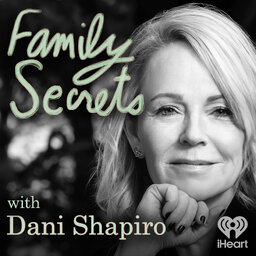Family Secrets Live: In Conversation with Gretchen Rubin, Part II
Dani and Gretchen respond to audience questions — including one from a former anonymous sperm donor, who wonders where his loyalties should lie after he’s asked not to tell one of his biological children the truth about her origins.
Learn more about your ad-choices at https://www.iheartpodcastnetwork.com
 Family Secrets
Family Secrets


